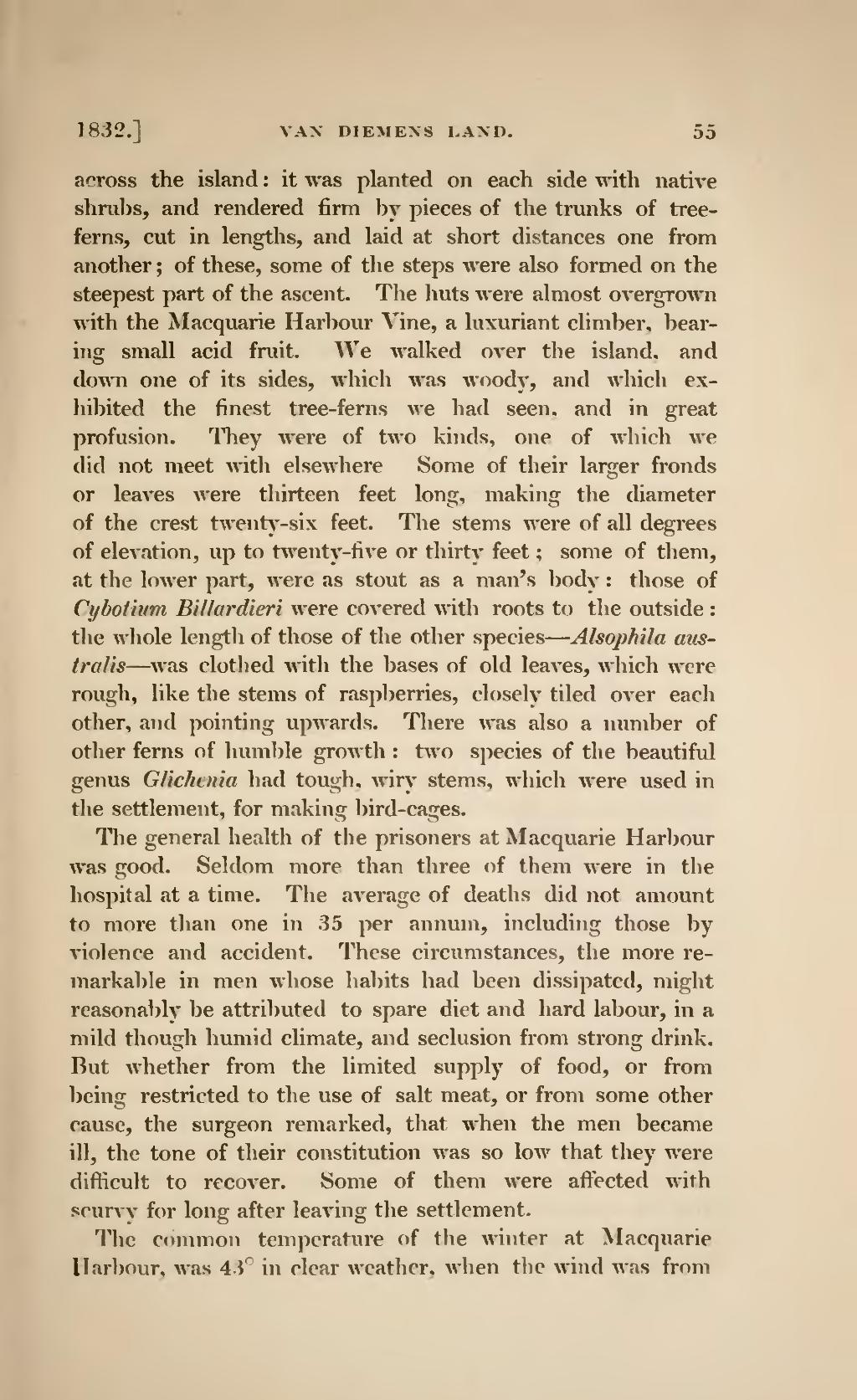across the island: it was planted on each side with native shrubs, and rendered firm by pieces of the trunks of tree-ferns, cut in lengths, and laid at short distances one from another; of these, some of the steps were also formed on the steepest part of the ascent. The huts were almost overgrown with the Macquarie Harbour Vine, a luxuriant climber, bearing small acid fruit. We walked over the island, and down one of its sides, which was woody, and which exhibited the finest tree-ferns we had seen, and in great profusion. They were of two kinds, one of which we did not meet with elsewhere Some of their larger fronds or leaves were thirteen feet long, making the diameter of the crest twenty-six feet. The stems were of all degrees of elevation, up to twenty-five or thirty feet; some of them, at the lower part, were as stout as a man's body: those of Cybotium Billardieri were covered with roots to the outside: the whole length of those of the other species—Alsophila australis—was clothed with the bases of old leaves, which were rough, like the stems of raspberries, closely tiled over each other, and pointing upwards. There was also a number of other ferns of humble growth: two species of the beautiful genus Glichenia had tough, wiry stems, which were used in the settlement, for making bird-cages.
The general health of the prisoners at Macquarie Harbour was good. Seldom more than three of them were in the hospital at a time. The average of deaths did not amount to more than one in 35 per annum, including those by violence and accident. These circumstances, the more remarkable in men whose habits had been dissipated, might reasonably be attributed to spare diet and hard labour, in a mild though humid climate, and seclusion from strong drink. But whether from the limited supply of food, or from being restricted to the use of salt meat, or from some other cause, the surgeon remarked, that when the men became ill, the tone of their constitution was so low that they were difficult to recover. Some of them were affected with scurvy for long after leaving the settlement.
The common temperature of the winter at Macquarie Harbour, was 43° in clear weather, when the wind was from
